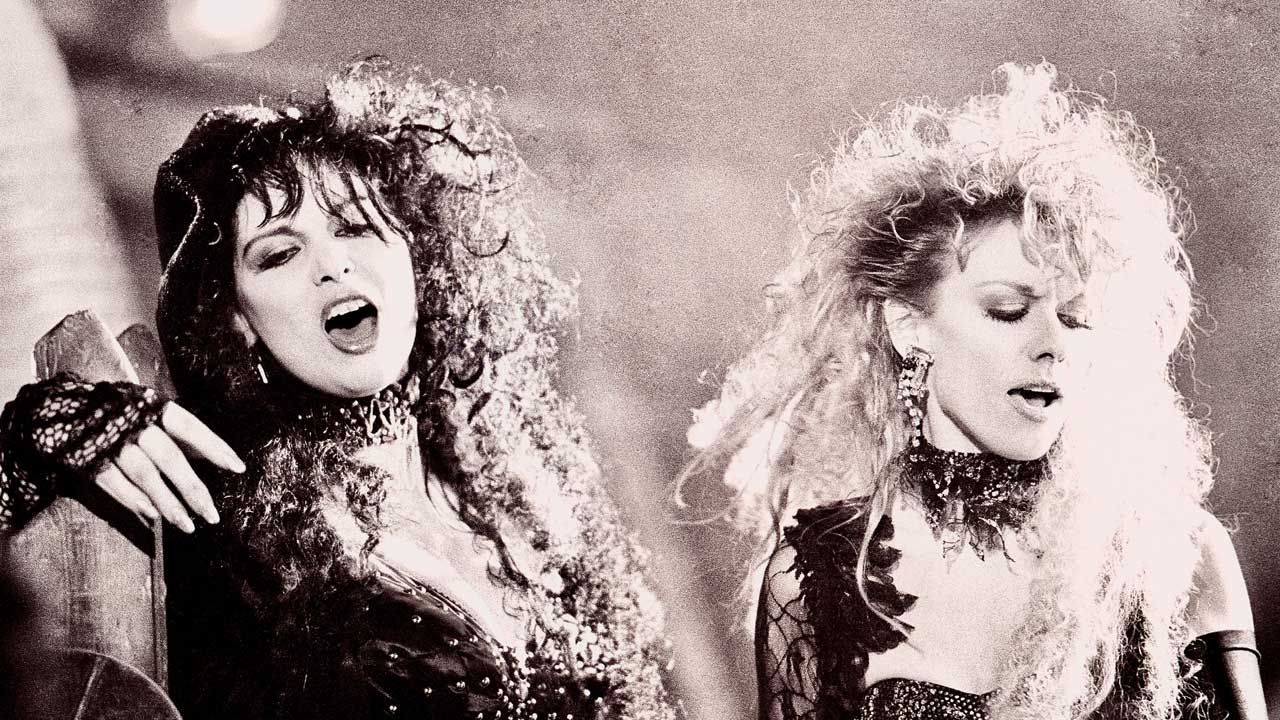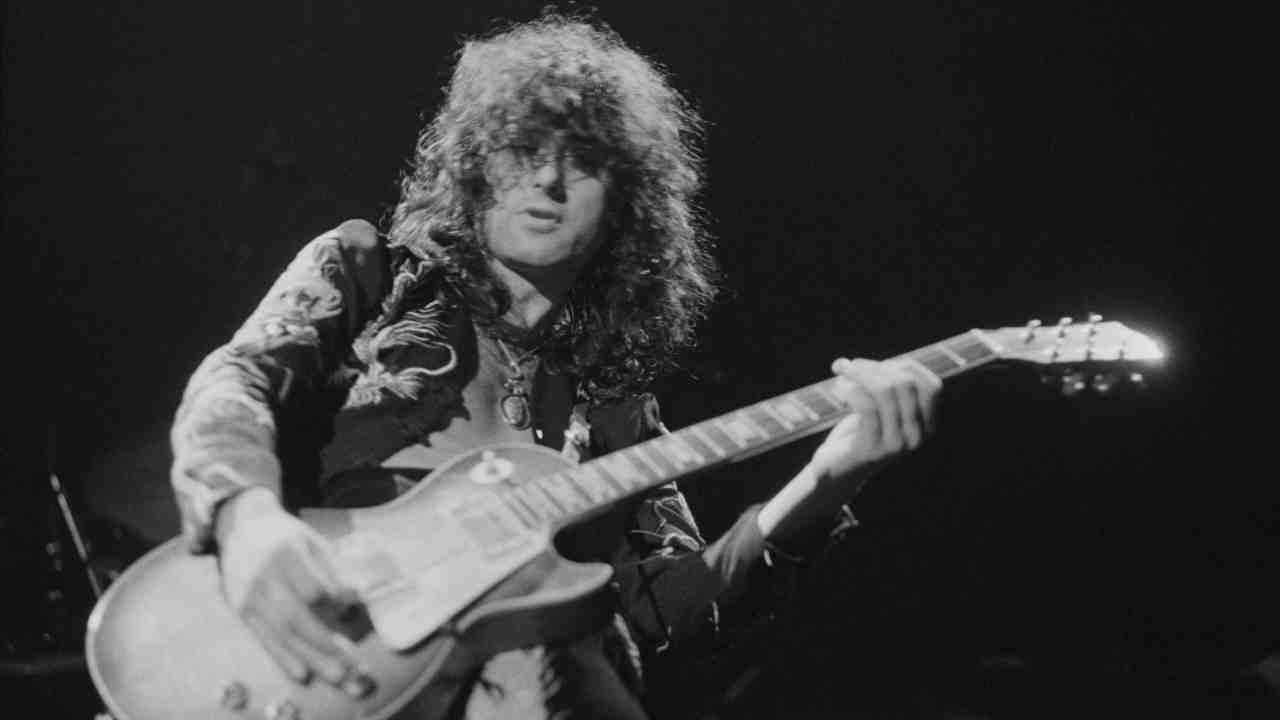"It was sort of a devil's bargain" - Ann Wilson tells the story of the Heart album that reinvented the band
Heart singer Ann Wilson recalls the making of a multi-platinum, MTV-friendly monster

Heart's seventh studio album, 1983's Passionworks, signalled a transition in their sound. The album relied heavily on synthesisers, with the pastoral, acoustic-oriented folk-rock sound of their early albums all but gone. Most adventurously, drummer Denny Carmassi began using one of the first Simmons electronic drum kits.
It didn't work. The album was the band's last of their deal with Epic Records, and when it failed to make a significant impact they were quietly dropped.
Heart refused to give up. Delighted to learn that not all record labels had lost faith in them, they signed with Capitol and underwent a complete transformation. Bringing in outside songwriters such as Martin Page, Bernie Taupin, and Holly Knight, they recorded Heart, which was released in 1985. The album was a massive success, selling millions and yielding four hit singles. Below, singer Ann Wilson looks back on how it all happened.

"In 1984 we had just sort of washed up on the beach after a big personnel change in the band and a management change. We changed everything. Nancy and I just instinctively felt that we had come to the end of an era. So we had gotten a new bass player and drummer [Mark Andes and Denny Carmassi] and Howard Leese stayed on.
"We were in a real state of change, so the mood in the band was that our expectations were not real high. We were just trying to re-form; things were kinda chaotic. We had the enthusiasm of Don Grierson, the guy who signed us at Capitol, but we knew that we had to make a hit record or quite possibly we’d find ourselves without a record deal.
“He had a vision for the band that we hadn’t even thought of yet because we were just out there, slogging playing concerts in the country. We weren’t back in the cultural centres, where at that time they were formulating all this new video world and songwriting world, we were out in the middle of America. Don and Capitol were imagining something for us that we couldn’t even guess at yet.
“It took Nancy and I a couple of bangs over the head with a sledgehammer to really understand that [using outside songwriters] was a good thing for us, because we had previously written everything. The type of stuff we were writing was not the type of stuff that was being accepted by radio. So we kept giving our songs to the pile that were under consideration for the Heart record. Maybe, sixty per cent of them were songs that Nance and I wrote, but the forty per cent were the ones that were getting used. That sounds funny, cos you’d think Nance and I would be in the driver’s seat on that, but at that time we were not.
Sign up below to get the latest from Classic Rock, plus exclusive special offers, direct to your inbox!
“It was hard, because we really liked the success that it brought – a lot. But we really felt uncomfortable about the fact that we’d worked all those years and written all those songs and it took other people’s songs to get us Number Ones. So it was sort of a devil’s bargain. But I’m not going to lie to you and say that someone else tied our hands and made us do it. We did it of our own free will. It’s just that later on when it became expected of us, that’s when we really went, okay, this is enough.
“Back then in the extremely egocentric and ambitious eighties there was that hysterical, desperate, ‘we’re just gonna do whatever it takes’ attitude. And that’s what the record company had. We were encouraged to have it too, and we did have it. We did a lot of stuff going after this goal, and I think in the process we forged a pretty amazing group. It just took me a while to get used to the idea of singing other people’s songs, of being an interpreter of other people’s songs.
“At first it was definitely not calculated. It was dress-up, it was kabuki, it was theatre. Both Nancy and I have always loved make-up and styling and clothes. And what person wouldn’t wanna look at a rack of outrageous clothes and pick from them and turn yourself into this amazing rock creature?”
“It was just amazing fun. And then we tried to take them out on the road to recreate that live. And with all the real conditions of playing in the deep south in the extreme heat and humidity, with a corset and big heavy hair and velvet and that kinda stuff, it became really hard.”
“The album sounds like a product of its era, but if you listen deeper into the songwriting some of those songs are great. And they translate and they come down the years. That album, I gotta say, glossy as hell, sounds very corporate. And the eighties was corporate, the eighties was driven by cocaine and arrogance, and it fit that bill. And we succeeded in standing on top of the icy mountain."
Ann Wilson was speaking with Siân Llewellyn.

Classic Rock editor Siân has worked on the magazine for longer than she cares to discuss, and prior to that was deputy editor of Total Guitar. During that time, she’s had the chance to interview artists such as Brian May, Slash, Jeff Beck, James Hetfield, Sammy Hagar, Alice Cooper, Manic Street Preachers and countless more. She has hosted The Classic Rock Magazine Show on both TotalRock and TeamRock radio, contributed to CR’s The 20 Million Club podcast and has also had bylines in Metal Hammer, Guitarist, Total Film, Cult TV and more. When not listening to, playing, thinking or writing about music, she can be found getting increasingly more depressed about the state of the Welsh national rugby team and her beloved Pittsburgh Steelers.
- Fraser LewryOnline Editor, Classic Rock
